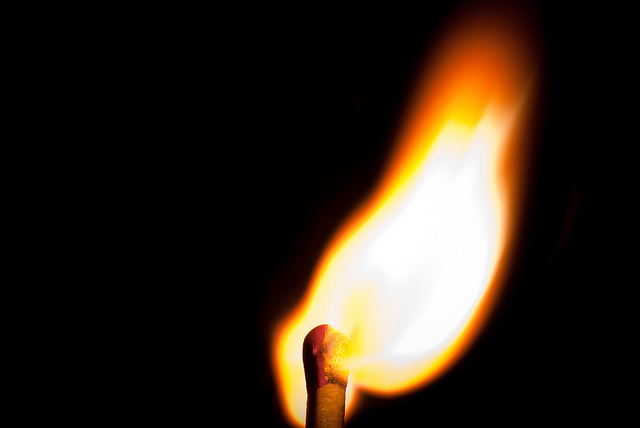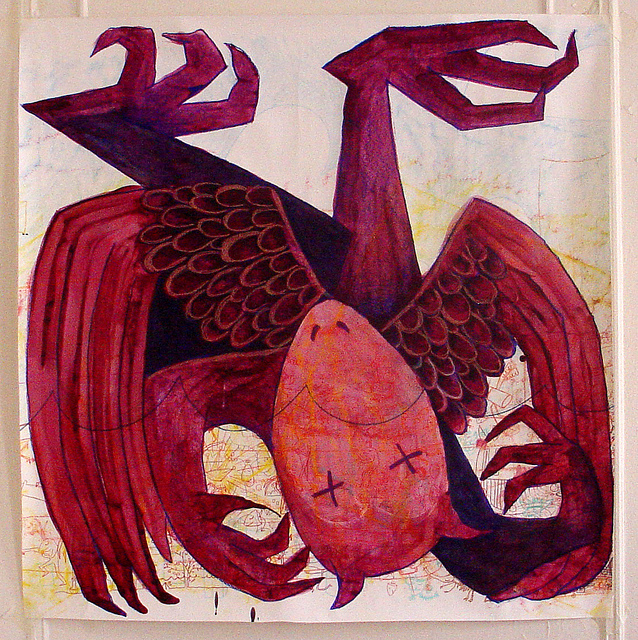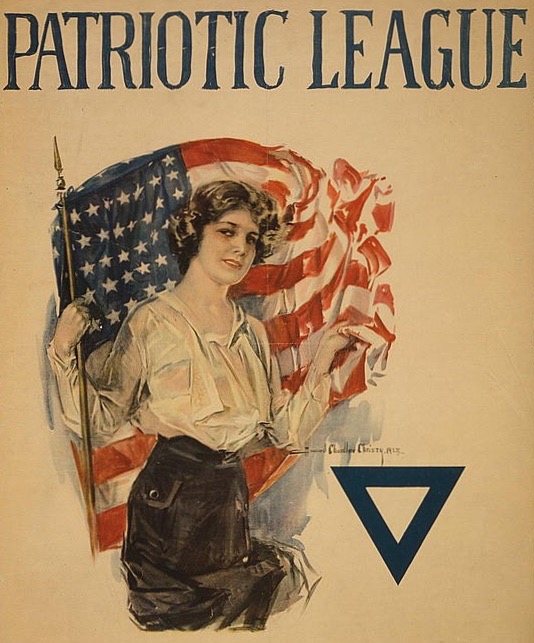The Tao that Trump Won’t Hear
By H.L.M. Lee
When I take my younger daughter to school, I see the rush of her first grade friends running to hug each other and share head lice (much to the chagrin of every parent). My daughter’s BFF has a father from England and a mother from Maine. Another girl’s father is Muslim and her mother is— I don’t know. My own two daughters are Chinese-Italian. They have friends who are African-American and Hispanic. One neighborhood boy has a blended family with a mother and two fathers. I am seldom overwhelmed by emotion, but the morning drop-off often makes me choke up. To these children, unconcerned about the larger world around them, all that matters is the joy in shouting about their newest toy or the treat they have for snack time.
Lately, when I sit alone in my office and stare at the computer screen, I find myself choking up for a different reason. I imagine the death of Martin Luther King Jr.’s vision that the arc of the moral universe bends toward justice. In my more cynical moods, I give up and accept a world where, for my girls and girls everywhere, their gender is an insurmountable obstacle to reaching their potential. The sadness strikes me like the loss of a friend and I fight tears, because a man who couldn’t pass the vetting for babysitter has been elected president.
It takes a team of architects, carpenters, electricians, plumbers, decorators and more to build a house, but only one person with a match to burn it down. The Trump administration is making a shambles of democracy, damaging the environment, perverting our humanity and turning from knowledge. He has fired James Comey, Director of the FBI. Whatever you think of Comey, the action of firing the man investigating Trump and those around him should ring every fire alarm in the country.
In this dispiriting time, I have been reading the Tao Te Ching and keeping it on my nightstand. A classic Chinese text of 81 short chapters, it embodies a philosophy of Tao (pronounced “dow”), which has been described as Path or Way, referring to right conduct. This interpretation, however, is only a shadow of Tao’s many layers of meaning, which underlie all we are and all we perceive. The second word Te (pronounced “deh”) is often translated as Virtue, but virtue from following the Tao rather than transitory social rules.
Attributed to Lao-Tzu, who may or may not have been an actual person, and originating about 2,500 years ago, the Tao Te Ching is the basis of Taoism, one of Asia’s major religions, though it mentions no deity.
The Tao that can be told is not the eternal Tao.
The name that can be named is not the eternal name.
—Chapter 1
Tao itself is undefinable—even in the original Chinese as these first lines admit. Yet, the Tao Te Ching with its terse poetry and insight resonates for many across enormous differences in time and culture. For me it is now a needed source of perspective.
Lifted from their metaphysical context, lines from the Tao Te Ching sound like the epigram in a fortune cookie, but Lao Tzu’s advice to Chinese lords is as relevant in the age of Donald Trump as it was 2,500 years ago.
Oversharpen the blade, and the edge will soon blunt.
. . .
Claim wealth and titles, and disaster will follow.
—Chapter 9
Can there be a better summation of Trump’s path? All his life he has crowed about his wealth and status. But creditors repossessed his 281-foot yacht in 1991 and imminent ruin forced him to take a $916 million write-off in 1995. He would have been richer investing his money in the S&P 500 and leaving it alone, instead of developing businesses and buildings. Trump Airlines was a bust. Trump University was a sham. Trump Steaks were greasy and tasteless.
The way of nature is unchanging.
Knowing constancy is insight.
Not knowing constancy leads to disaster.
—Chapter 16
“No drama” Obama’s steadiness during eight years as president contrasts sharply with Trump’s contradictory statements—often in the same sentence. Trump says that unpredictability gives him the advantage in business. Maybe, but it would be catastrophic in governance and we are seeing its harrowing consequences in real time.
Those who boast achieve nothing.
Those who brag will not endure.
—Chapter 24
Trump has the “best words.” He called the Trump Taj Mahal casino the “Eighth Wonder of the World”—before it went bankrupt and cost him real estate, the yacht I have already mentioned, his private plane, and his helicopter. Can anyone trust a man who masqueraded as his own publicist to bray about affairs with celebrities? Unlike the “fine tuned machine” that Trump touted, his White House lurches like Boris Karloff’s Frankenstein from one self-inflicted crisis to another.
Easy promises make for little trust.
Taking things lightly results in great difficulty.
—Chapter 63
Trump pandered to supporters by saying he could “make possible every dream you have ever dreamed.” That’s not a campaign promise, that’s a skeevy pickup line. “We’re going to have insurance for everybody… great healthcare,” he vowed, “It will be in a much-simplified form. Much less expensive and much better.” Now that Trumpcare has passed the House—promising, instead, to throw tens of millions off health insurance and eliminate protections for those with pre-existing conditions—will his supporters finally take off their beer goggles and see, by the cold light of morning, who they brought home?
Knowing ignorance is strength.
Ignoring knowledge is sickness.
—Chapter 71
Science begins by accepting ignorance then moves toward knowledge. That’s how we learned to launch rockets into space and harness electricity, how we developed the Big Bang theory and quantum mechanics, and why we cook pork. To curtail the study of climate change, Trump seeks to cut funding for NOAA weather satellites, which would hobble the ability to forecast tornadoes and hurricanes, and endanger lives in the process.
Why are the people starving?
Because the rulers eat up the money in taxes.
. . .
Why are the people rebellious?
Because the rulers interfere too much.
—Chapter 75
Superficially, these lines support conservative beliefs that people are taxed too much and government regulations are a burden. But the brevity of the Tao Te Ching requires delving beneath the surface. Two chapters later is a more expansive passage:
The Tao of heaven is to take from those who have too much and give
to those who do not have enough.
Ordinary people act differently.
They take from those who do not have enough to give to those who
already have too much.
Who has more than enough and gives it to the world?
Only the wise.
—Chapter 77
If people starve, it is from taxation in the broader sense, from the wealthy taking too much as they fight the minimum wage and the social safety net, leaving the 99 percent to work more and more for less and less.
If people rebel, it is from interference with women’s control of their bodies; interference with civil rights and the right to vote; interference with the right to live, love and worship freely. These were the cries from protesters on Boston Common the day after Trump’s inauguration. My family and I were there, shouting with them, an official estimate of 175,000. But a number can’t convey the visceral punch from seeing broad patches of pink, like flowers, spread across the Common. The patches were masses of pussy hats and each flower was a woman, man or child gathered on that brisk, sunny day. I stood in awe, seeing that crowd filling the grounds in common cause.
Every morning I wake at 5:30 and lie quietly, a mundane start but one that prepares me for the day. At breakfast, I listen to the news and steel myself against yet another assault on government and society. The list of what’s at stake is overwhelming, but I find the will to persist in these words, implicitly reminding me that water can wear away stone—if it flows and agitates:
Under heaven nothing is more soft and yielding than water.
Yet for attacking the solid and strong, nothing is better;
It has no equal.
—Chapter 78
H.L.M. Lee is an electronics engineer with a background in English literature. While owning and operating a small high-tech company, he also writes web content and marketing materials, and develops video scripts for a peer reviewed scientific journal. He has recently finished a novel, Bleeding in Babylon, about the Iraq War.
Author’s note: All passages from Tao Te Ching were translated by Gia-fu Feng and Jane English, with Toinette Lippe, Third Vintage Books edition, 2011.
Photo credit: Derek Gavey via a Creative Commons license.



